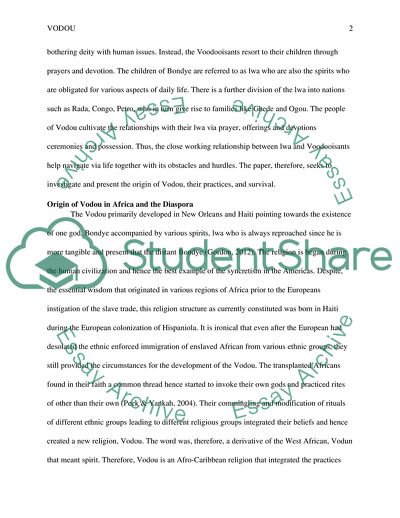Cite this document
(Vodou in Africa and the Diaspora Essay Example | Topics and Well Written Essays - 1250 words, n.d.)
Vodou in Africa and the Diaspora Essay Example | Topics and Well Written Essays - 1250 words. https://studentshare.org/religion-and-theology/1880378-vodou-in-africa-and-the-diaspora
Vodou in Africa and the Diaspora Essay Example | Topics and Well Written Essays - 1250 words. https://studentshare.org/religion-and-theology/1880378-vodou-in-africa-and-the-diaspora
(Vodou in Africa and the Diaspora Essay Example | Topics and Well Written Essays - 1250 Words)
Vodou in Africa and the Diaspora Essay Example | Topics and Well Written Essays - 1250 Words. https://studentshare.org/religion-and-theology/1880378-vodou-in-africa-and-the-diaspora.
Vodou in Africa and the Diaspora Essay Example | Topics and Well Written Essays - 1250 Words. https://studentshare.org/religion-and-theology/1880378-vodou-in-africa-and-the-diaspora.
“Vodou in Africa and the Diaspora Essay Example | Topics and Well Written Essays - 1250 Words”. https://studentshare.org/religion-and-theology/1880378-vodou-in-africa-and-the-diaspora.


